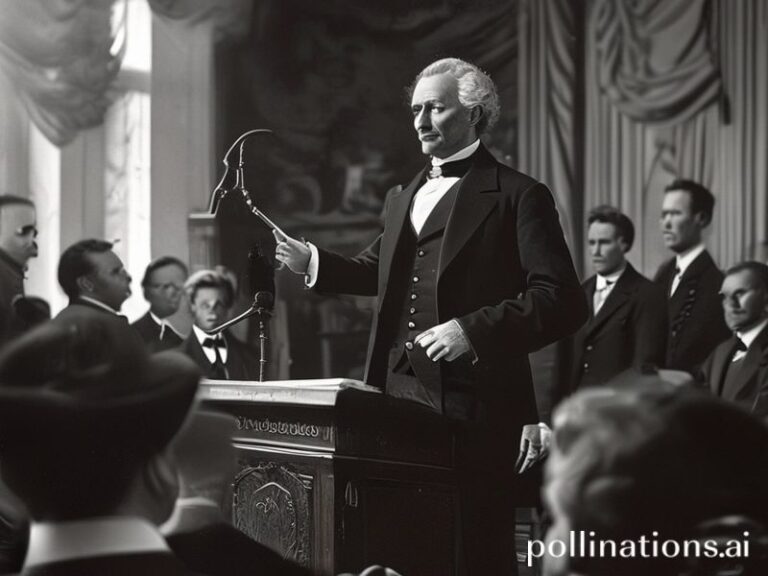Barbora Krejčíková’s French Open Win: The Czech Quietly Rewriting Global Tennis Power Maps
Barbora Krejčíková and the Quiet Collapse of Tennis’ Old World Order
by Dave’s Locker Foreign Desk
Prague – Somewhere between the second espresso and the third existential crisis of the week, Barbora Krejčíková won the French Open again. This time the victory felt less like a coronation and more like an accidental coup: a 28-year-old Czech who still travels with a dog-eared playbook from her late coach (may Jana Novotná rest in a heaven where line calls are never overturned) just reminded the entire WTA that empires fall not with a bang but with a neatly placed backhand down the line.
For those keeping geopolitical score, her win matters beyond the red clay of Roland-Garros. Tennis has spent the last decade manufacturing stars the way TikTok manufactures consent—loudly, algorithmically, and with the shelf life of unrefrigerated oysters. Meanwhile Krejčíková has been waging a one-woman insurgency against the cult of personality, armed only with court craft and the faint suspicion that the world might not actually need another branded lifestyle channel. Her second Parisian trophy is less a sports headline than a soft-power memo: Central Europe can still produce self-propelled excellence without the Silicon Valley grooming academies or Gulf-state stipends that now underwrite most elite sport.
International ripple effects are already penciled into calendars. Asian broadcasters—who once banked on Osaka’s mixed-race marketability and Raducanu’s London-Chinese crossover appeal—now have to explain to sponsors why a woman who sounds like she’s ordering coffee in Brno is suddenly shifting merchandise in Shenzhen. The EU, forever desperate for any symbol that isn’t a flaming agricultural subsidy, has embraced her as proof the single market can nurture champions who don’t defect to Monte Carlo. Even Washington’s think-tankers have noted, with thinly veiled annoyance, that Krejčíková’s victory lap included no triumphant photo-op at a NATO airbase. Apparently, winning Grand Slams without invoking the transatlantic alliance is now a subversive act.
Of course, the broader significance lies in what she hasn’t done. She hasn’t fired her coach via Instagram. She hasn’t launched a vegan collagen line. She hasn’t (yet) complained that Wimbledon’s strawberries are triggering. In an age when athletes moonlight as crisis PR case studies, Krejčíková’s most radical move is simply playing tennis—then speaking about it in complete sentences that acknowledge the existence of other human beings. It’s quaint, like finding a rotary phone that still takes incoming calls.
Still, let’s not romanticize too hard. The woman is sponsored by a watch company whose cheapest model costs more than the average Moldovan monthly wage, and her post-match press conferences are still filtered through the WTA’s corporate fun-house. But compared to the performative vulnerability Olympics unfolding elsewhere, she offers a throwback to the 20th-century notion that excellence can be enough. That idea, quaint as a payphone, suddenly feels revolutionary.
There is also the small matter of doubles. While other elites treat the doubles court the way billionaires treat tax law—something to be dodged—Krejčíková keeps turning up, often still sweaty from singles, to remind opponents that court sense is not divisible by category. In doing so she has quietly become the most versatile player since Serena, and the only one who can claim the No. 1 ranking in both singles and doubles without hiring a separate entourage for each. The logistical savings alone must give her accountant the giggles.
What comes next is the usual circus: grass, hard courts, the manufactured drama of ranking points, and the inevitable speculation on whether she can “handle the pressure” of being interesting. History suggests the spotlight will either melt her or make her rich enough to buy a small republic. But if the last fortnight is any guide, Krejčíková will keep treating fame like a line call—worth a polite nod, maybe a raised eyebrow, and then back to business.
In a world currently renegotiating every assumption from energy supply chains to the concept of objective reality, that steadiness is almost suspicious. One suspects the universe will try to invoice her eventually. Until the bill arrives, we can enjoy the rare spectacle of merit winning on merit, and pretend—just for a rally or two—that the game still belongs to the players.







